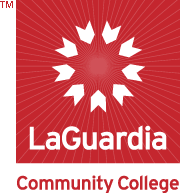Document Type
Assignment
Publication Date
1-2018
Abstract
This integrative learning writing assignment encourages students to develop a mission statement as they think about how we can all come together to make the world better. It asks them to research an issue to provide background, history, and contextual information; outline strategies and solutions for social change and/or justice; and organize a call to action. The focus of the assignment is interdisciplinary learning as well as for students to collaboratively reflect on how initiatives for change can directly affect their lives but to also be aware of resistance and potential obstacles in delivering change. This assignment was revised in the context of an integrative learning mini-grant and a charrette session. It addresses all dimensions of the integrative learning core competency and written ability rubrics.
Aspects of this assignment are low-stakes; however, the final product is high-stakes, 15% of final grade. Completing this assignment takes about a third of the semester—four weeks in the regular semester and two in the six-week semester.
LaGuardia’s Core Competencies and Communication Abilities
Main Course Learning Objectives:
1. Enable students to understand that writing is a process involving such strategies as prewriting, drafting, revising, editing and proofreading.
2. Teach students to read and listen critically and analytically, including identifying an argument’s major assumptions and assertions and evaluating its supporting evidence.
3. Teach students to write clearly and coherently in varied academic formats (such as formal essays, research papers, and reports) using standard English and appropriate technology to critique and improve one's own and others' texts. Essays will vary in length between 600 and 1500 words. Faculty will enable students to understand audience, voice, and purpose.
4. Guide students to acquire research skills by using appropriate technology, including gathering evaluating, and synthesizing primary and secondary sources. Faculty will teach students to utilize quotation, summation, paraphrase, and citation and to avoid plagiarism.
5. Teach students to support a thesis with well-reason arguments, and communicate persuasively over a variety of contexts, purposes, audiences, and media.
6. Guide students to formulate original ideas and relate them to the ideas of others by employing the conventions of ethical attribution and citation.
Creative Commons License

This work is licensed under a Creative Commons Attribution 4.0 License.


Comments
This resource is part of the Learning Matters Assignment Library.